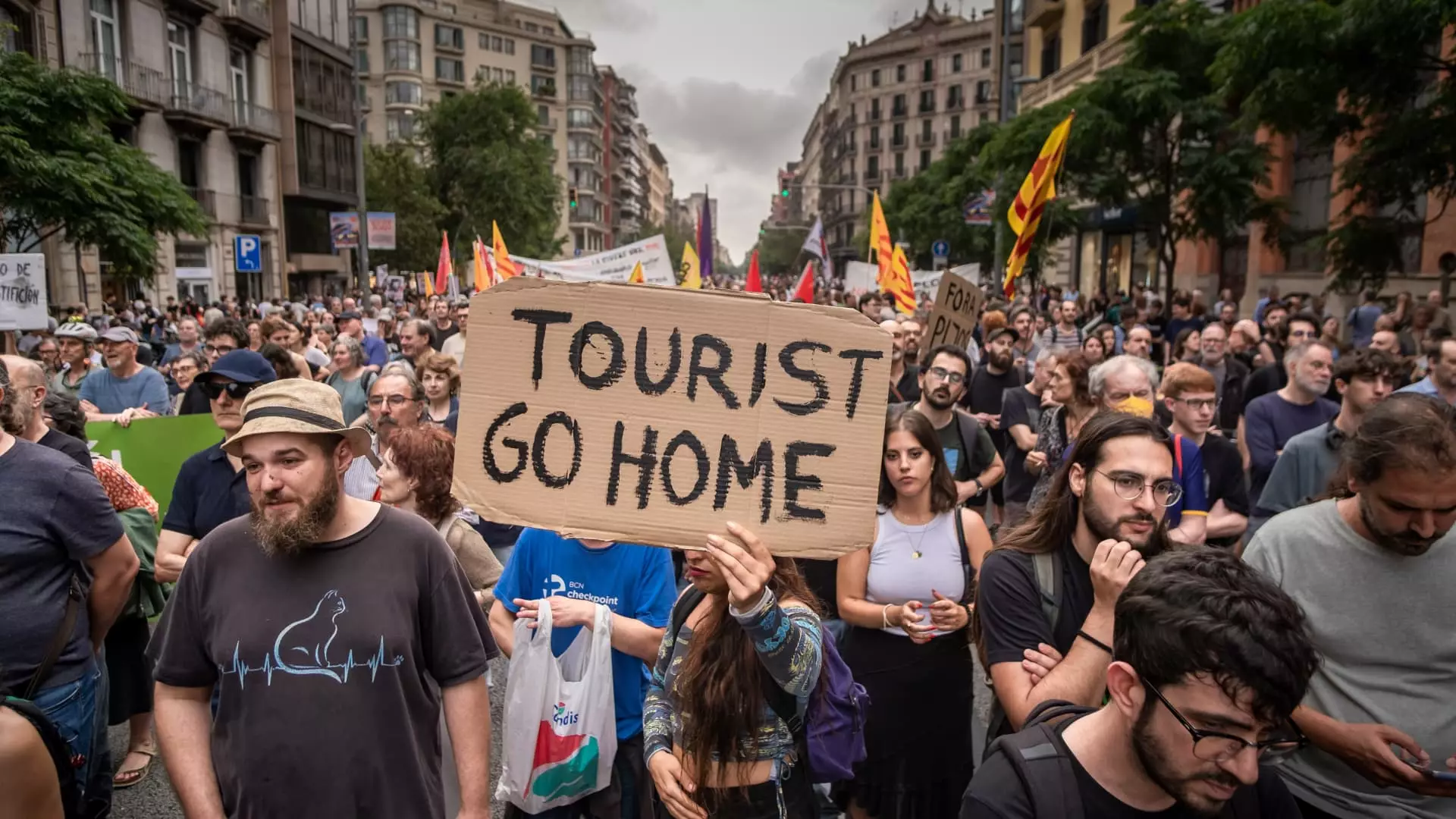In a striking display of civic engagement, Barcelona witnessed a major protest on July 6, 2023, as thousands marched through the city, vocally demanding, “Tourists go home!” These protests, which drew participants from various demographics concerned about overtourism, highlighted the tensions simmering beneath the surface in tourist-dominated locales. Such grassroots movements have become increasingly common in cities that bear the brunt of mass tourism, and Barcelona is no exception.
However, the situation became more perplexing in the days that followed. Spain’s tourism board countered the protesters’ grievances with a robust marketing campaign, proclaiming, “Spain: the summer you’ll want to repeat every year.” This juxtaposition between public outcry and tourism promotion raises critical questions about the sustainability of tourism and the realities faced by local residents who feel overwhelmed by the influx of travelers.
Despite the controversy, data collected post-protests suggests that international tourists were largely unfazed. In August 2023, approximately 10.9 million visitors flocked to Spain, reflecting a 7% rise from the previous year, as reported by the National Statistics Institute. Unsurprisingly, the most frequented areas were those embroiled in protest activities. The Balearic Islands, often recognized for their stunning beaches and vibrant nightlife, welcomed around 2.4 million international tourists—an increase of 4% from 2022. Meanwhile, Catalonia drew 2.3 million visitors, marking a 6% uptick.
Interestingly, a survey conducted by Mallorca’s tourism board presented a disheartening narrative for protest advocates. It indicated that 89% of American tourists were either oblivious to the protests or unconcerned about their implications. While a notable 70% asserted that their awareness of the protests had no bearing on their travel plans, the question remains: Does this indifference signal a deeper disconnection between tourists and the challenges faced by local communities?
Although initial reports suggested a tangible downturn in bookings following the protests, as noted by travel analytics firm RateGain, the adverse effects appeared to wane quickly. The company’s analysis found a temporary 23% drop in hotel reservations shortly after the protest. Yet, within six weeks, tourism in the city rebounded, providing further evidence that the allure of Barcelona’s cultural and scenic offerings outweighed protest sentiments.
Daniel Pardo Rivacoba, a representative of the Assembly of Neighbourhoods for Tourism Degrowth, argued that the July 6 protest was only the first step toward a broader campaign aimed at reforming Barcelona’s tourism policy. The organization has articulated a 13-point manifesto that advocates for a variety of measures: limiting short-term rentals, reducing the number of cruise ship terminals, and revising airport expansion plans, all in an effort to redirect tourism management towards sustainability.
However, the response from Barcelona’s city council has been characterized as inadequate by these activists. While officials released a comprehensive “Government Measure for Tourism Management 2024-2027” with recommendations aimed at mitigating the impacts of overtourism, Rivacoba dismissed these efforts as mere “cosmetic speeches.” The spokesperson for the city council emphasized, however, the economic significance of tourism, claiming it contributes 14% to the city’s GDP—a factor that complicates the narrative.
As Barcelona grapples with its tourism identity, solutions appear rooted in managing visitor flow rather than curtailing the number of tourists altogether. Emerging technologies, like mobile phone monitoring and real-time crowd data systems, are being explored to strike a balance between the economic advantages of tourism and the quality of life for residents.
Nevertheless, advocates for sustainable tourism, like Rivacoba, remain skeptical of such measures, arguing they do not address the underlying issue of tourist overpopulation. Recent plans to hike tourism surcharges have been met with skepticism, perceived as tactics to profit rather than as earnest attempts to mitigate overtourism’s repercussions.
Public sentiment in Barcelona appears to be shifting. Many citizens are increasingly vocal about their opposition to unregulated tourism growth, suggesting that the narrative surrounding tourism’s economic benefits is losing traction. Rivacoba cites a changing perspective in public discourse, stating that the once-unquestioned belief in tourism as universally beneficial is waning.
Interestingly, Booking Holdings’ CEO, Glenn Fogel, offered a more diplomatic view, arguing that effective management of tourism necessitates cooperation among governments, residents, and travel companies. This broader collaboration might be crucial for finding sustainable solutions that respect the needs and desires of both locals and tourists.
As Barcelona and similar cities navigate the complexities of tourism, the developments following the July protests remind us that while economic interests thrive on tourism revenue, civic engagement and community well-being must not be overlooked in the quest for harmony between visitors and residents.


Leave a Reply